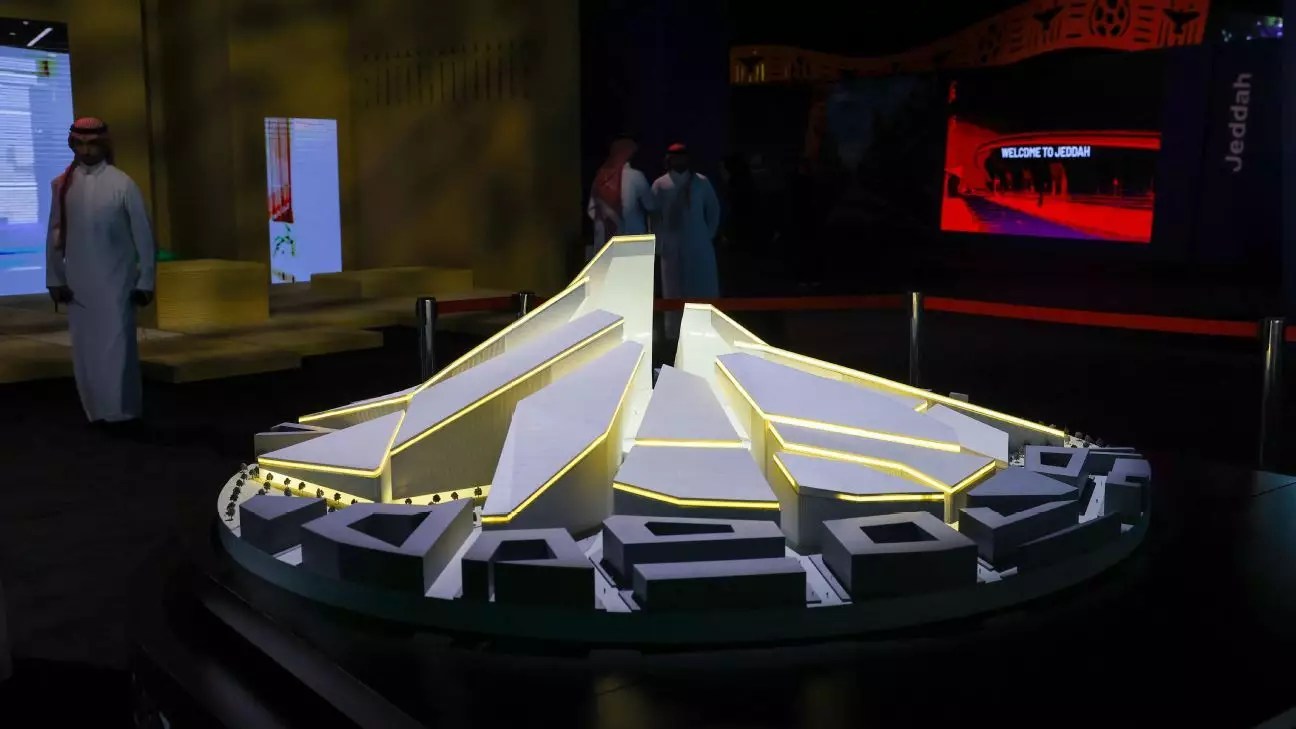The lead-up to the FIFA World Cup has historically been clouded by political and ethical challenges, and the current situation surrounding Saudi Arabia’s bid to host the 2034 edition is no different. With the world’s spotlight on the footballing body and the prospective host, numerous organizations, including Amnesty International and the Sport & Rights Alliance (SRA), have raised pressing alarms regarding human rights issues in the Kingdom. As global anticipation rises, so too do the ethical responsibilities of governing bodies like FIFA.
Amnesty International and the SRA advocate for a suspension of the bidding process to select Saudi Arabia as the World Cup host until the country makes substantial commitments to human rights reforms. In a report, they scrutinized the human rights intentions listed by bidding nations and found them lacking—particularly the proposals from Saudi Arabia. The call to pause the selection process signals a critical stance on how sports governance should intersect with fundamental human rights.
The recent award of the 2030 World Cup to Morocco, Spain, and Portugal highlights the contrast in bidding nations’ readiness to meet human rights expectations. It sheds light on the urgent need for FIFA to establish stricter vetting measures to ensure that host nations are held accountable for the rights of all individuals—especially given the historical backdrop of human rights violations in Saudi Arabia.
Steve Cockburn, Amnesty’s head of labor rights and sport, has articulated the grim reality of awarding the tournament to Saudi Arabia without credible human rights guarantees. His statement starkly portrays the potential repercussions: increased discrimination against fans, plight of migrant workers, and a corresponding rise in fatalities stemming from unsafe working conditions. Historical context is essential here; the 2022 Qatar World Cup faced similar scrutiny—research cited by media groups suggested thousands of migrant worker deaths linked to World Cup infrastructure projects.
With Saudi Arabia focusing on ambitious infrastructure plans, including the development of 15 stadiums and 185,000 hotel rooms, one must wonder: at what human cost will these aspirations materialize? The experiences from neighboring Qatar serve as a somber reminder that hosting grand sporting events can exacerbate existing inequities and exploitation if proper frameworks are not established beforehand.
Another significant concern revolves around the treatment of LGBTQIA+ individuals under Saudi law. Despite assurances that fans would feel welcome and safe, the stark reality is far more complicated. Homosexuality is criminalized in the Kingdom, with severe penalties enforced, which raises red flags about FIFA’s endorsement of a host country that maintains such harsh legal repercussions against a segment of society.
It’s a delicate contradiction wherein Saudi officials promise an inclusive environment while the country’s legal structure fundamentally contradicts these statements. The juxtaposition poses questions about the authenticity of Saudi Arabia’s “commitment” to a discrimination-free event, as seen in their bid book’s claims of aligning laws with international standards.
FIFA’s announcement to publish bid evaluation reports prior to the extraordinary Congress on December 11 points towards a transparent selection process. However, this procedural transparency must encompass a rigorous examination of human rights records and assurances from the bidding nations. The organization needs to grapple with its ethical responsibilities, establishing criteria that prioritize human rights over financial considerations.
Saudi Arabia stands as a last resort bidder, raising concerns regarding competitive integrity and the lack of accountability in the selection process. Without serious pushback from FIFA, the precedent set by this choice could have cascading implications for how future World Cups are awarded and the ethical boundaries within which they operate.
As international debates continue regarding the implications of hosting the World Cup in Saudi Arabia, there is a significant opportunity for change. It is evident that a more robust human rights strategy is necessary before any final decisions are made. FIFA’s reputation hinges not only on footballing excellence but also on a commitment to navigating the complex interplay of sport and ethics wisely.
The global footballing community and fans alike must remain vigilant in advocating for transparency and accountability in sports governance. The history illustrated by recent World Cups serves as a compelling reminder that prestige should never come at the cost of fundamental human rights—an ideology that must be central to the conversation as we approach the bidding decision for the 2034 World Cup.


Leave a Reply